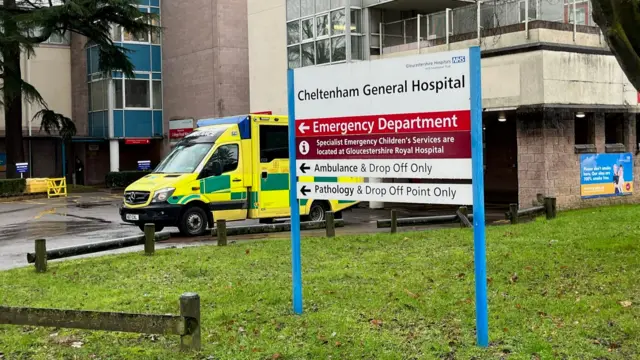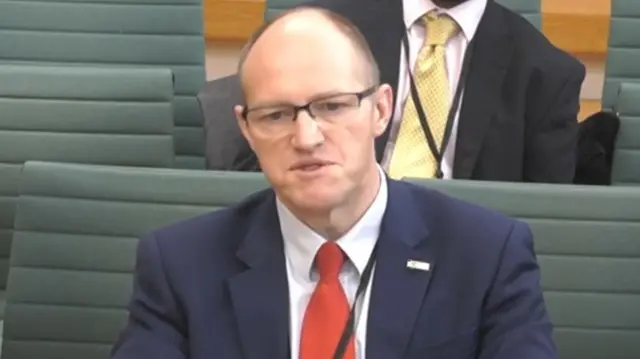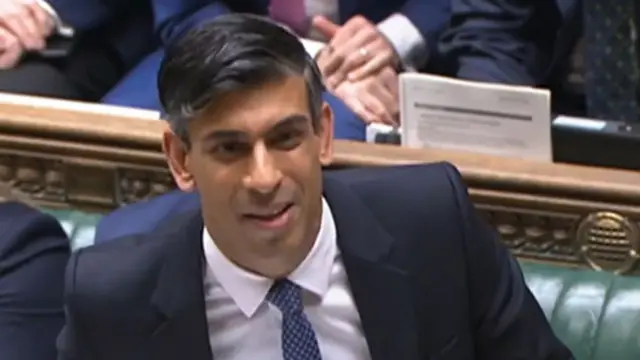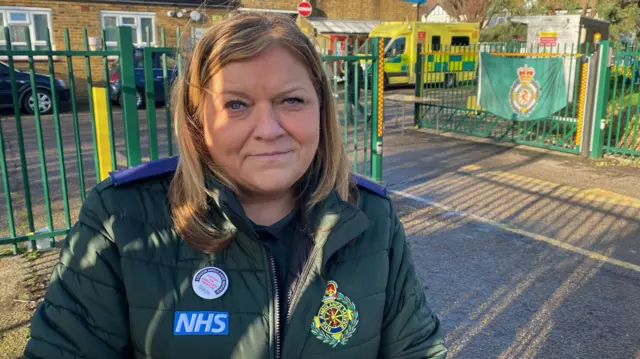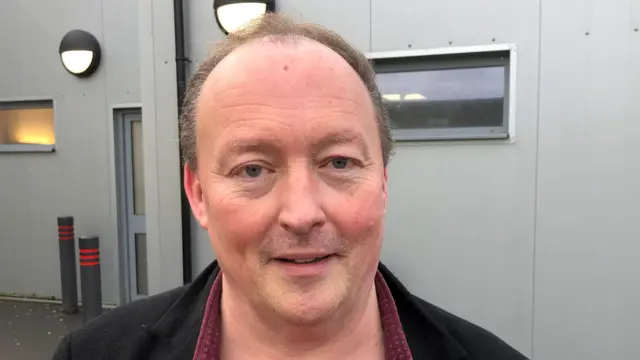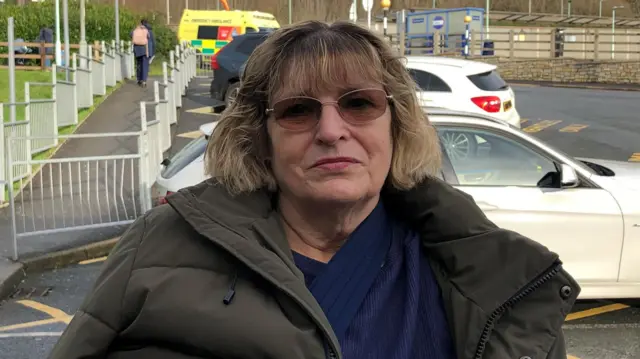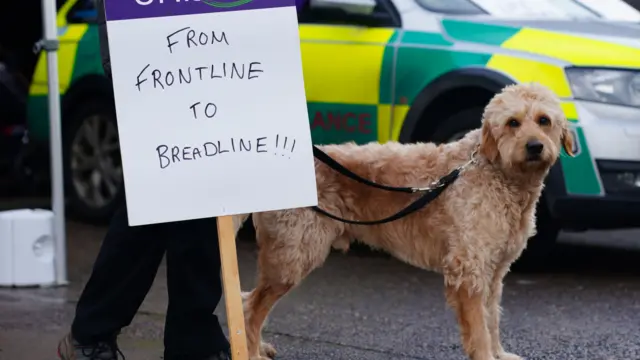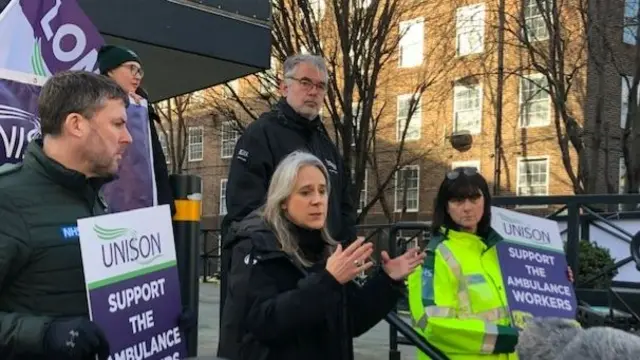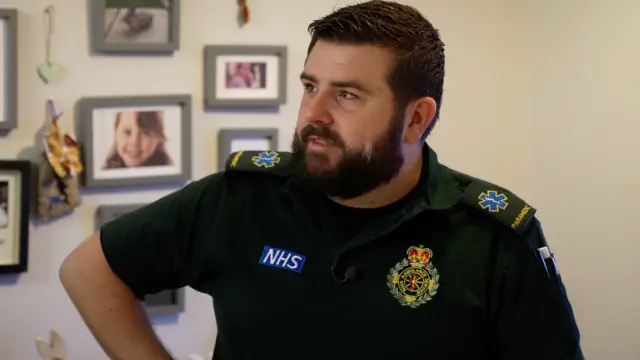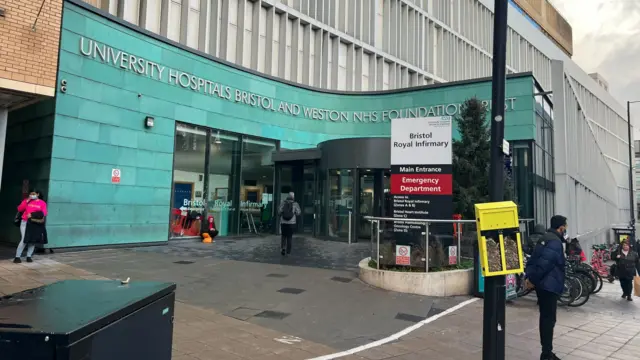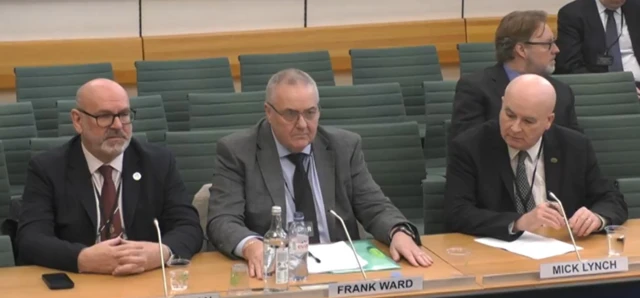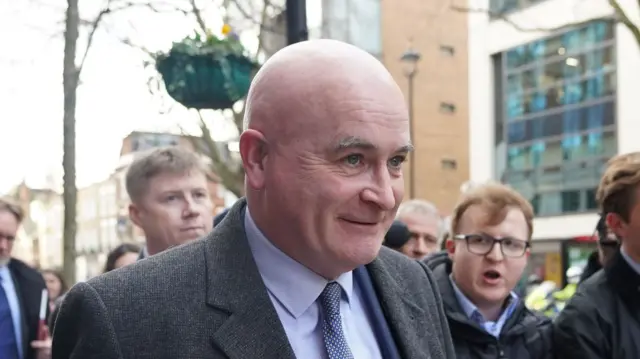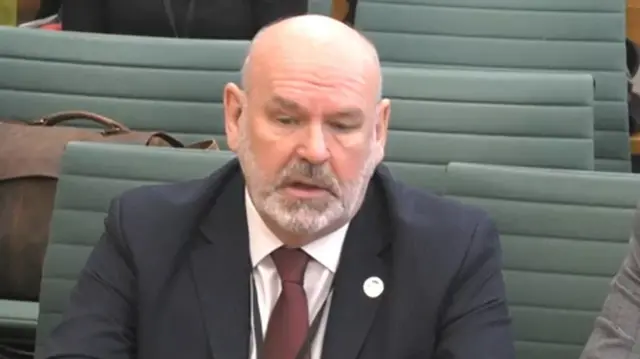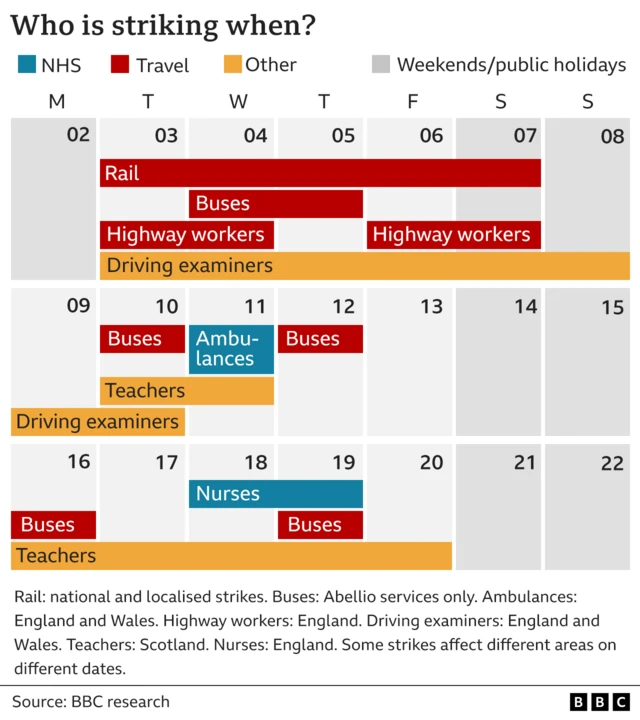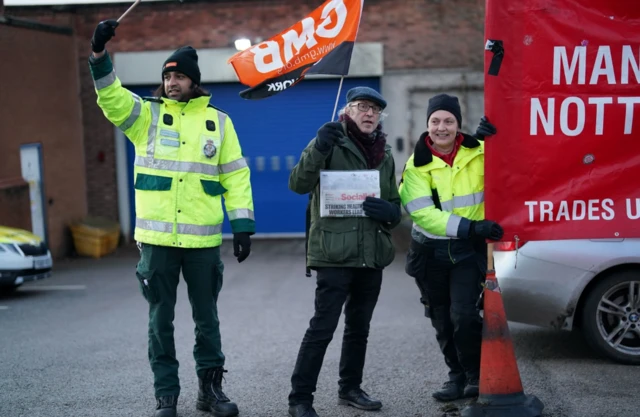Ambulances again being driven by armed forcespublished at 13:07 GMT 11 January 2023
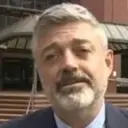 Phil Mackie
Phil Mackie
Reporting from Cheltenham General Hospital
The first ambulance to arrive at Cheltenham General Hospital’s emergency department after I arrived was driven by a member of the armed forces.
A paramedic helped them offload a patient on a stretcher.
Unison have described the strike in Gloucestershire as solid, and say they expect nearly every driver due to work today to support industrial action.
At 11:00 the average wait for patients once they arrived inside was six hours, and 35 people were waiting.
At its sister hospital – the Gloucestershire Royal - the wait was a little longer and the department was busier, with 75 patients in the department.
The Gloucestershire Hospitals NHS Foundation Trust described the situation in both departments as fairly typical.
